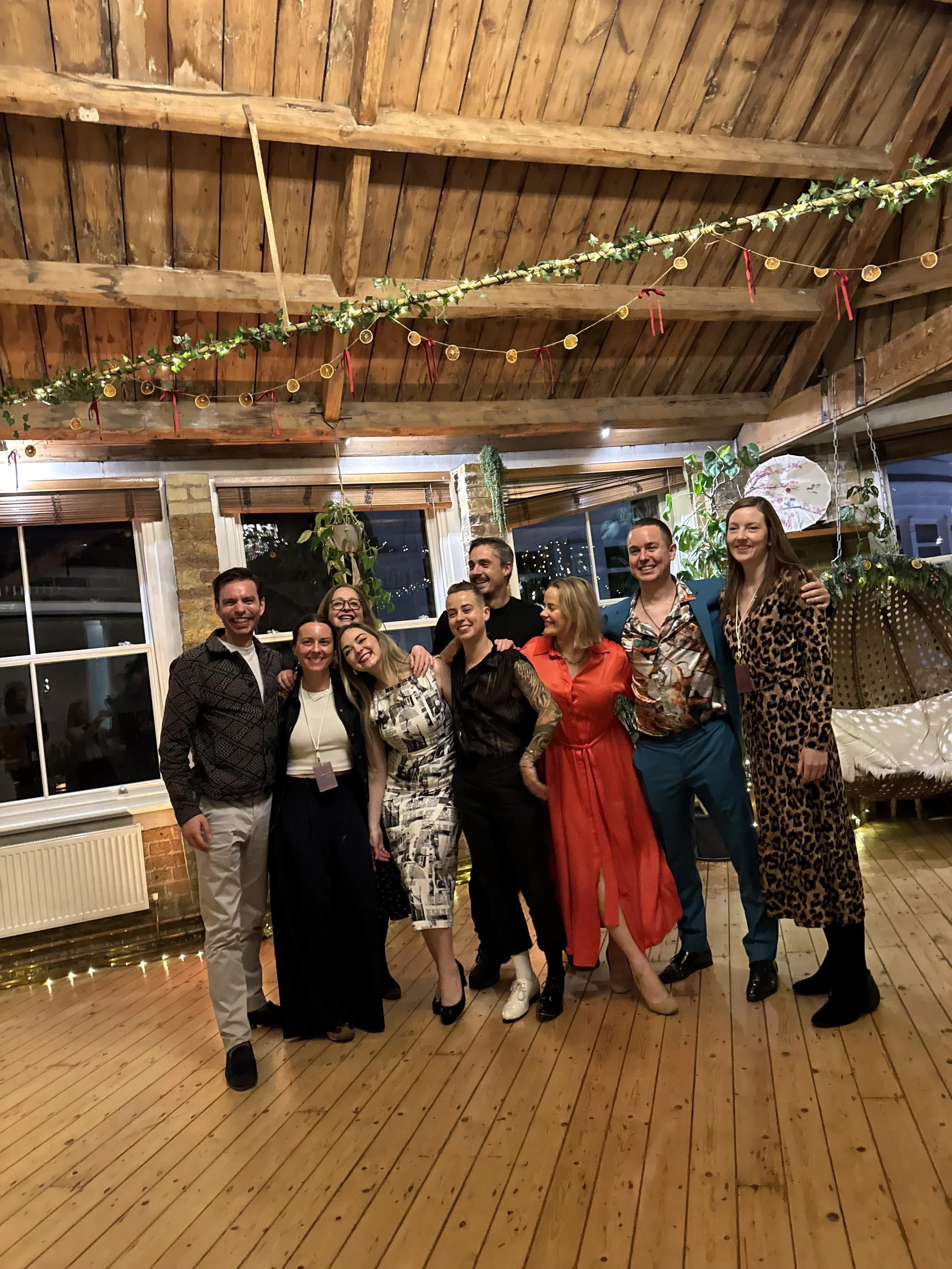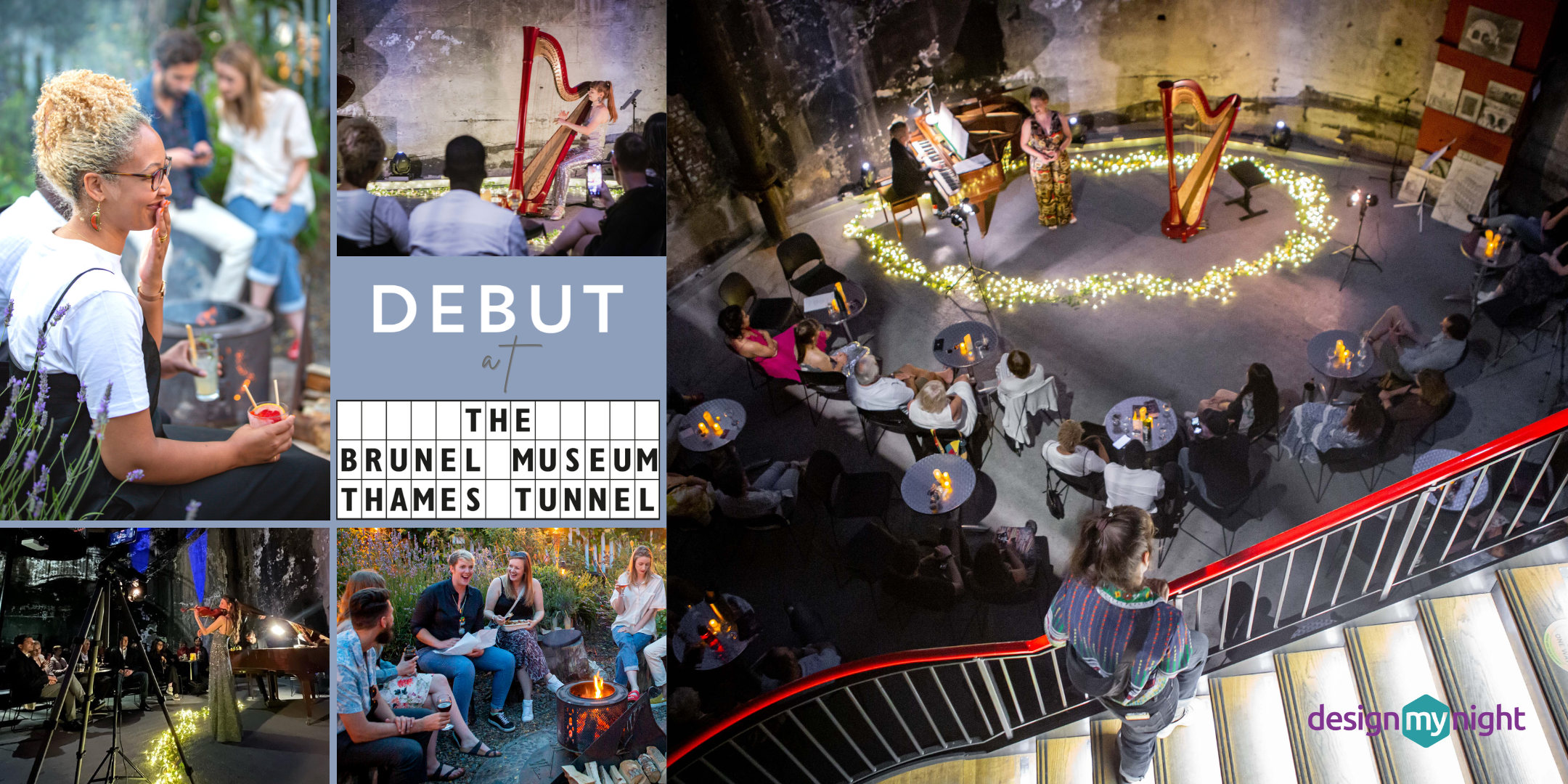Q&A with Glyndebourne’s Composer-in-Residence Lewis Murphy — The Toast of British Opera
“The toast of British Opera”
Composer Lewis Murphy is Glyndebourne’s youngest ever Composer-in-Residence – a position he held until the end of 2017. His other recent commissions have been for Scottish Opera and the National Opera Studio, as well as our very own DEBUT at Shoreditch Treehouse with soprano Gemma Summerfield. He chats to us about his collaboration with librettist and director Laura Attridge, his biggest inspirations and what it’s like to be a composer in the 21st century.
Lewis Murphy, composer
Our Q&A with Lewis Murphy
What excites you about classical music?
Most of all, I am excited by the strong connection with history that we all feel through classical music, whether as audience members or artists/performers. As audience members, listening to the sounds of past centuries, we experience something akin to time travel. As artists, we are either motivated or terrified (sometimes both simultaneously) by a feeling of legacy, of being part of a Western tradition that stretches back hundreds of years.
Did you always want to be a composer?
Not really, though I have been interested in Music my whole life. I began learning the flute while I was at primary school and performed in various local bands and orchestras, but my interest in composition is more recent. It wasn’t until I was about fifteen that I started to experiment with my own creativity and began taking composition lessons. Up until this point, I had considered a career in Engineering! When it was time for University/Conservatoire applications, I was curious to see where composition could take me, and I’m so glad I did.
Belongings (2017) - A new youth opera by Lewis Murphy, Glyndebourne’s Young Composer-in-Residence.
The opera followed the journeys of two groups of young people, divided by decades but united by the geographical displacement they experience. Performed by Glyndebourne Youth Opera, conducted by Lee Reynolds.
Do you have a favourite quote about music?
Throughout my studies, I did quite a lot of research into the music of Jean Sibelius. Talking about his approach to composition and how each piece grows from a natural consideration of the musical material as opposed to any ‘formula’ or ‘scheme’, he said, “I frequently think about the ice-ferns which, according to eternal laws, the frost makes into the most beautiful patterns.” This comparison between music and nature is something I find very inspiring, and something that I try to bear in mind when I am writing my own music.
What role do you believe classical musicians play in society?
I suppose classical musicians help create an environment in which people can escape the distractions and noise of the modern world. This kind of music requires focus and time, two things that we never seem to have enough of, but which can be so beneficial to our mental health.
“Classical musicians help create an environment in which people can escape the distractions and noise of the modern world”
Who or what is your biggest influence?
I adore Renaissance and early-Baroque music, particularly the work of Jean-Phillipe Rameau and Henry Purcell. There is an almost crystalline delicacy to so much of this music - something that I would very much like to achieve in my own work.
“I continue to learn more and more with each new project.”
DEBUT at Shoreditch Treehouse
What sort of training do you go through to become a composer?
I spent four years at the Royal Conservatoire of Scotland and two years at the Royal College of Music in London. However, the training didn’t stop there - I continue to learn more and more with each new project.
What does it feel like to hear a piece you have written brought to life in performance?
Hearing a piece brought to life is the most wonderful feeling. It is lovely to find out what the piece actually sounds like, since even the most sophisticated music notation software will only give the composer a rough idea. Also, I am always deeply humbled by the generosity and commitment of performers, directors and conductors, without whose hard work the music wouldn’t exist.
What piece of music could you not live without?
This is a very tricky question. I think my life would be very different without The Fields of Athenry - such an important song to me and my family; one that carries a lot of memories and that I enjoy singing almost every day.
Describe your compositional style in three words
“Lyrical, delicate, warm.”
Julien Van Mellaerts, baritone & Somi Kim, piano
Which of your peers/friends do you love to go and watch in performance? - and why?
I have seen my good friend Julien van Mellaerts perform many times, and I always appreciate the charm and warmth that he exudes onstage. He is also a superb communicator, and brings a wonderful sense of drama to his song recitals.
You collaborated with soprano Gemma Summerfield to arrange a new version of Handel’s ‘Soft Complaining Flute’ (commissioned specially for DEBUT at Shoreditch Treehouse with flute and guitar). Tell us about it..
This was the first time Gemma and I had worked together, though we have known each other for years. We both studied at the Royal Conservatoire of Scotland AND the Royal College of Music, and I have a huge amount of respect for Gemma as an artist. She really is one of the most talented young sopranos in the UK, which she proved when she won the Kathleen Ferrier Competition in 2015, and she is building a very impressive career for herself.
Collaboration of this kind, between a composer and a performer, is completely central to my own practice, though it is more commonly led by the composer. In this case, Gemma reached out to me to ask if I would be interested in creating a new arrangement of Handel’s The Soft Complaining Flute, and I was more than happy to get involved.
What do you think the main challenges and bonuses are for composing nowadays?
For me, one of the main challenges of composing nowadays is the quest for truly new ideas. It is increasingly difficult to think of something that has not already been done, and so I like to consider how ideas from the past might be reworked to create something fresh - for example, tonality (major and minor chords).
One bonus is there is no such thing as ‘schools’ of composition, and so everyone is free to pursue their own interests and develop their own unique style.
You work a lot with Laura Attridge - do you write with the theatre in mind?
Certainly, since I started collaborating with Laura in 2015, Opera and Theatre has become central to my work. During the development of a new dramatic piece, Laura and I think hard about how it is going to work onstage - for example, we might ask ourselves ‘How time is needed for this scene change?’ or ‘Is there enough room on stage for all the characters at this point in the story?’. Each new project benefits from our experience of previous commissions. We are currently working on a new opera for the Youth Opera Company at the Royal Opera House, which we hope will be our best yet!
Lewis Murphy & Laura Attridge
'Howell's Decision' (2018), commissioned by the National Opera Studio and written by Lewis Murphy.
Performed by Edmund Danon (baritone) and Igor Horvat (piano).
'Epilogue' from 'A Garden Dream' (2016), commissioned by Glyndebourne, composed by Lewis Murphy. Musicians: Julia Hamon (Titania), Tom Verney (Puck), Jake Muffett (Bottom), Glyndebourne Youth Opera, Aileen Henry (harp), Toby Carr (guitar), Wezi Elliott (Lute)
Lastly, what is your guilty pleasure?
Singing like a countertenor :-P
Watch this space for Lewis & Laura’s announcement about a new commission for the Royal Opera House Youth Company
To find out more about Lewis Murphy and his upcoming performances and recordings you can visit his website.
Lewis is also active on Twitter.
Sign up to DEBUT’s newsletter to be the first to hear about our Q&As and latest announcements!
What’s On
See DEBUT’s upcoming concerts and performances










